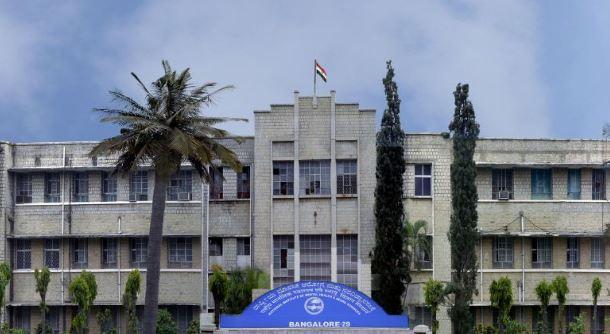2019 Criminal Defamation Case: Rahul Gandhi gets Relief in Supreme Court

On 4th August 2023, the Supreme Court of India stayed the verdict given by the surat court in the 2019 criminal defamation case against Rahul Gandhi. The case pertains to his alleged “Modi” surname remark made during a political rally in 2019.
A three-judge Bench, headed by Justice B.R. Gavai and comprising Justices P.S. Narasimha and Sanjay Kumar, stayed Rahul Gandhi’s conviction and pointed out several key aspects that needed examination.
2019 Criminal Defamation Case Background
On 23rd March 2023, Surat District Court dealt a significant blow to Congress leader Rahul Gandhi as he was found guilty in a criminal defamation case filed against him over his remarks on the surname “Modi” in 2019. The court sentenced him to two years of imprisonment, but he was later granted bail.
According to the Representation of People Act of 1951, a person sentenced to imprisonment of two years, will be disqualified from the date of judgment and is banned from contesting in any election for another six years after serving the time.Thus, Rahul Gandhi was disqualified from the position of MP from Wayanad. Moreover, he was also barred from contesting in the 2024 General Elections.
The defamation case was lodged against Rahul Gandhi based on a complaint filed by BJP MLA and former Gujarat minister Purnesh Modi. The complaint was triggered by Gandhi’s statement, “how come all the thieves have Modi as the common surname?”, made during a rally in Kolar, Karnataka, ahead of the 2019 Lok Sabha elections.
Chief Judicial Magistrate HH Varma presided over the case, which was filed under Indian Penal Code (IPC) sections 499 and 500, dealing with defamation. Rahul Gandhi had previously appeared before the Surat court in October 2021 to record his statement.
In his complaint, BJP MLA Purnesh Modi alleged that Gandhi’s statement defamed the entire Modi community. He contended that the remark disparaged individuals sharing the surname “Modi,” insinuating that they were thieves. Purnesh Modi, a minister in the first tenure of the Bhupendra Patel government, was re-elected from the Surat West Assembly seat in the December elections.
The case’s final arguments resumed from February 2023 after the Gujarat High Court lifted its stay on the proceedings, which had been imposed on the complainant’s plea demanding Rahul Gandhi’s personal appearance.
The verdict has generated significant political interest and debate, given Rahul Gandhi’s prominence as a Lok Sabha MP from Wayanad. His remarks during the 2019 rally in Karnataka had sparked controversy and drew sharp reactions from BJP members and supporters.
However, the court’s decision to grant bail to Rahul Gandhi provides temporary relief for the Congress leader. The case’s legal battle has brought to light the importance of exercising caution while making public statements, especially in a politically charged environment.
Court’s Observations on Conviction
The Supreme Court noted that the trial judge had failed to provide any reasoning for imposing the maximum sentence of two years, stating “not one day less.” This lack of explanation raised concerns about the issue of Rahul Gandhi’s disqualification from Parliament, making it a crucial point for consideration.
While the court acknowledged that Gandhi’s alleged remarks, if made, were not in good taste, it emphasized the need for public figures to exercise caution in their statements. As a person in public life, Rahul Gandhi should have been more careful with his words to maintain decorum.
Arguments from Both Sides
Senior advocate Abhishek Manu Singhvi, representing Rahul Gandhi, argued that defamation is a non-cognizable, bailable, and compoundable offense. He questioned the imposition of the maximum two-year sentence, pointing out that such a punishment is rarely seen in such cases. He stressed the importance of dissent in a democracy and highlighted that no serious offenses involving moral turpitude had been committed.
Singhvi also pointed out that the cases against Gandhi were filed by BJP members, and there were no prior convictions against him. He called for mutual respect in politics and urged the court to consider the implications of setting such a precedent.
On the other side, senior advocate Mahesh Jethmalani, appearing for Purnesh Modi, presented evidence such as officials, witnesses, and recordings of Gandhi’s comments. He argued that Rahul Gandhi’s intent was clear – to defame an entire community bearing the “Modi” surname due to his animosity towards Prime Minister Narendra Modi. Jethmalani highlighted that Rahul Gandhi claimed to not remember making the remark during court proceedings.
Petition’s Contentions
Rahul Gandhi’s petition contended that his political speech, which criticized economic offenders and Prime Minister Narendra Modi, was unfairly branded as an act of “moral turpitude” by the lower courts. He argued that such a finding could significantly impede democratic free speech during political campaigns and hamper critical political dialogue or debate.
Moreover, Gandhi raised concerns that the conviction and two-year sentence, the maximum punishment in defamation law, could result in his exclusion from all political elective offices for a prolonged period of eight years.
Way Forward
The Supreme Court’s order of stay in this case will ensure Rahul Gandhi’s return to Lok Sabha as the Member of Parliament (MP) from Wayanad. Moreover, he will be able to contest in the upcoming 2024 General Elections.





